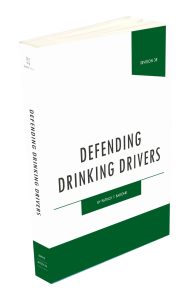Search
How to Beat an Breath Alcohol Test – A Comprehensive Guide
Breathalyzer tests are frequently used by law enforcement to measure blood alcohol content (BAC) and determine if a driver is impaired. However, there are numerous ways these tests can be challenged. This comprehensive guide will explore various strategies and insights into beating a breath test.
Facing a DUI Charge in Michigan? Here’s What You Need to Know About Beating the Breath Test
Let’s get real — seeing that breathalyzer result print out a number above the legal limit is terrifying. But here’s something most people don’t know: that number isn’t always right. In fact, it’s often wrong. Breath tests aren’t flawless, and they’re not the end of the story — they’re just one piece of evidence. At Barone Defense Firm, we’ve helped countless clients challenge these results successfully.
 Michigan Criminal Defense Lawyer Blog
Michigan Criminal Defense Lawyer Blog


